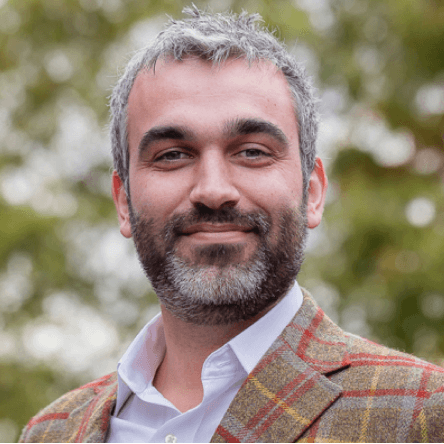
Peter Clark
Peter Clark, PhD is the Head of Computational Drug Design at Novo Nordisk, where he heads a global, interdisciplinary team of computational scientists focused on accelerating the delivery of differentiated therapeutics to patients through applied digital innovation across the R&D value chain. His expertise and leadership in the field led to the delivery of several clinical candidates and approved therapies including CAR-T, gene therapy, peptides, biologics (antibodies) and small molecules assets. Prior to joining Novo Nordisk, Peter served as the Global Head of Computational Science & Engineering within the Therapeutics Discovery (TD) organization of Johnson & Johnson Innovative Medicines, where he led the design and implementation computational approaches and platforms across the pharmaceutical value chain; supporting the advancement of several NMEs per year. Peter also served as the Director of Bioinformatics at the University of Pennsylvania, Perelman School of Medicine, where he worked closely with academic and commercial collaborators on the design, optimization of gene therapy assets from early research and development through commercially partnered IND enabling clinical studies. Peter is also clinically trained in molecular genetics (The Children’s Hospital of Philadelphia) with extensive experience in the design, validation, and implementation of diagnostic and prognostic next generation sequencing (NGS) assays within a clinical, CAP/CLIA certified laboratory setting. During his clinical molecular pathology fellowship at CHOP, Peter co-developed and commercialized the first to market, high resolution, next generation sequencing based HLA genotyping assay and was subsequently awarded the Scholar of the Year award by the American Society for Histocompatibility and Immunogenetics (ASHI) in 2015 for his contributions to the field of solid organ and bone marrow transplantation. Peter earned his B.Sc. and Ph.D. from Drexel University, School of Biomedical Engineering prior to completing a postdoctoral fellowship at The Center for Computational Medicine at Thomas Jefferson University. Peter’s diverse expertise in computer science, engineering, clinical molecular genetics, computational biology, and translational research has led to the publication of over 60 peer-reviewed scientific publications as well as three book chapters, several issued patents and three biotechnology spin-off companies.